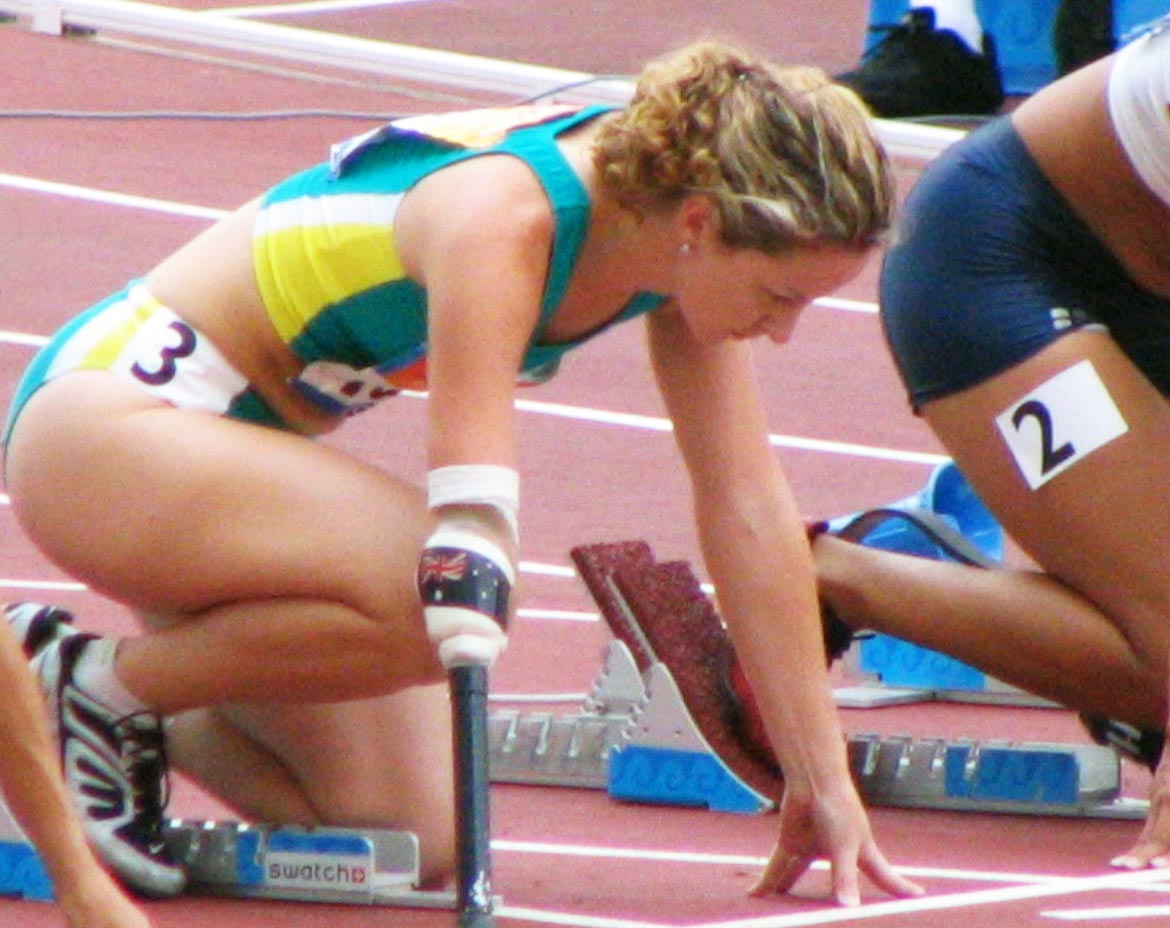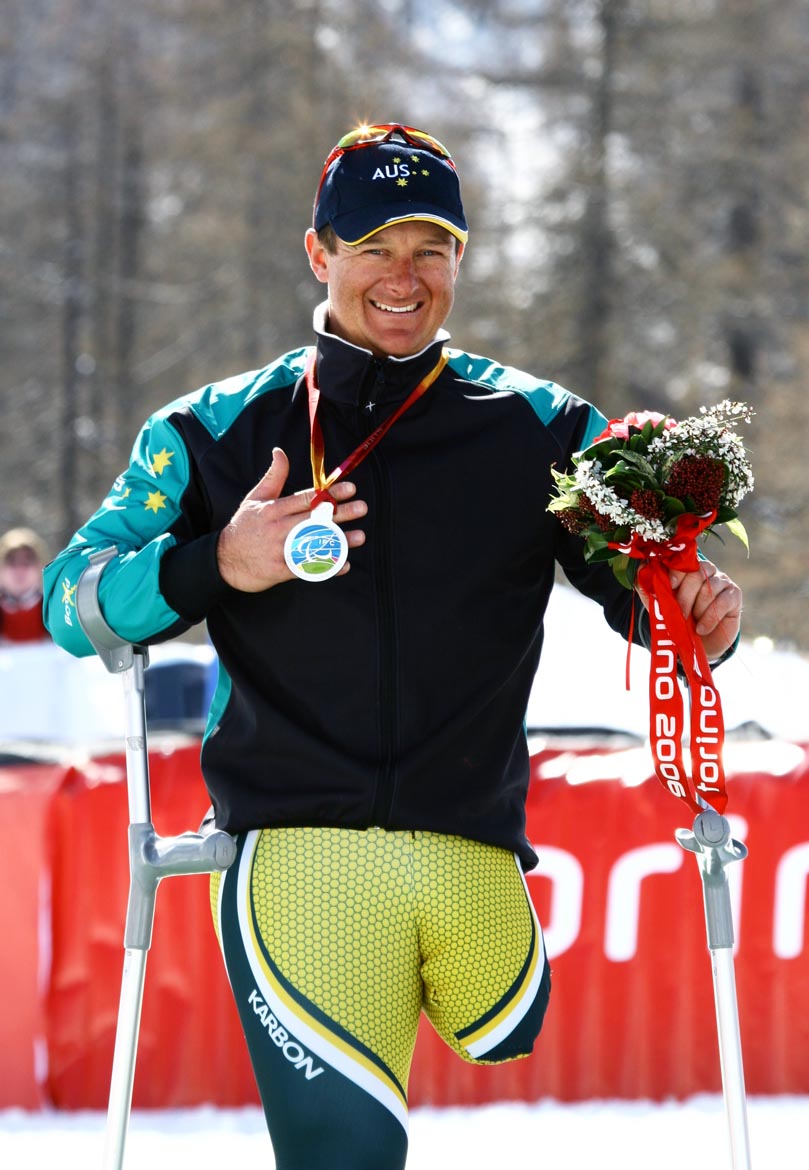
Ludwig Guttmann, father of the Paralympic movement
Ludwig Guttmann, father of the Paralympic movementHis principles have continued in spinal units around the world
Dr John Yeo discusses the important legacy of Sir Ludwig Guttmann
Dr John Yeo discusses the important legacy of Sir Ludwig Guttmann
Charlene Todman – Australia’s first Stoke Mandeville Games competitor
Charlene Todman – Australia’s first Stoke Mandeville Games competitor
George Bedbrook, father of the Paralympic movement in Australia
George Bedbrook, father of the Paralympic movement in AustraliaBedbrook was totally dedicated to medicine
Bill Mather-Brown talks about George Bedbrook and his influence
Bill Mather-Brown talks about George Bedbrook and his influence"This must have been my destiny to do what I've done"
Frank Ponta on how it all started
Frank Ponta on how it all startedDaphne Ceeney: "... a new start in life."
Daphne Hilton (nee Ceeney) talks about the difference being at Mt Wilga made to her life.
Daphne Hilton (nee Ceeney) talks about the difference being at Mt Wilga made to her life."He regarded disabilities as just part and parcel of life."
Daphne Ceeney on the essential guidance of Kevin Betts
Daphne Ceeney on the essential guidance of Kevin Betts"I thought the top of my head had gone"
Bill Mather-Brown on the hazards of sabre, and Australia’s first gold medal
Bill Mather-Brown on the hazards of sabre, and Australia’s first gold medal
The road to Australia’s first Paralympic gold medal started with a plane crash
The road to Australia’s first Paralympic gold medal started with a plane crash
Ross Sutton, Australia’s first Paralympic gold medallist, starts his rehab
Ross Sutton, Australia’s first Paralympic gold medallist, starts his rehabGary hooper: how lucky I am to be here
Gary Hooper talks about ‘making it’ as a Paralympic athlete
Gary Hooper talks about ‘making it’ as a Paralympic athlete
Daphne Ceeney on her pride in being Australia’s first female Paralympian
Daphne Ceeney on her pride in being Australia’s first female Paralympian
Gary Hooper on the place in history of the first Paralympians
Gary Hooper on the place in history of the first Paralympians
Australian team 50-year reunion Rome Summer Paralympics
Australian team 50-year reunion Rome Summer ParalympicsI hope they appreciate us, and what we've done for the future
Listen to how Frank Ponta would like to be remembered
Listen to how Frank Ponta would like to be remembered"Tony would cut up an old rubber tyre and tie it round their legs"
Elizabeth Edmondson on training in an able-bodied squad at 14
Elizabeth Edmondson on training in an able-bodied squad at 14"Just get in there, do your job, and go home again"
Listen to Elizabeth Edmondson’s experience of the 1964 Tokyo Games
Listen to Elizabeth Edmondson’s experience of the 1964 Tokyo Games
1964 Team Members passing on wisdom to 2012 athletes
1964 Team Members passing on wisdom to 2012 athletesEverytime you went away you'd learn from everyone
Frank Ponta talks about learning from other teams
Frank Ponta talks about learning from other teams
Tracey Freeman won 3 gold medals with 3 world records
Tracey Freeman won 3 gold medals with 3 world records
GALLERY: Tracey Freeman was the Australian star of the 1972 Paralympics
GALLERY: Tracey Freeman was the Australian star of the 1972 Paralympics
Tracey Freeman sets new records in discus, javelin and shot put.
Tracey Freeman sets new records in discus, javelin and shot put.
Ron Finneran carried the Australian flag at the opening ceremony of the first winter Paralympics
Ron Finneran carried the Australian flag at the opening ceremony of the first winter Paralympics
Before she was a shooting legend, Libby did other sports
Before she was a shooting legend, Libby did other sports
Congratulations for Vic on a new world record and a gold medal
Congratulations for Vic on a new world record and a gold medal"I just put my name down as a manager or whatever you call it."
Ron Finneran talks about the role of Chef de Mission
Ron Finneran talks about the role of Chef de Mission
She used to be an archer, so maybe that explains Libby’s headwear choice
She used to be an archer, so maybe that explains Libby’s headwear choice
Relay gold and the first Paralympic gold medal by an Indigenous Australian
Relay gold and the first Paralympic gold medal by an Indigenous Australian
Libby Kosmala lets nothing distract her from dominating her sport
Libby Kosmala lets nothing distract her from dominating her sport
And Barbara Caspers chimed in with four shooting golds of her own
And Barbara Caspers chimed in with four shooting golds of her own"As a 14 year old, your're sitting there with 2 of the best 5 guys in the world."
Michael Milton talks about his first Paralympic Games
Michael Milton talks about his first Paralympic Games
A very young Michael Milton gets set for his first Paralympic event
A very young Michael Milton gets set for his first Paralympic event
From the operating table to the dais – the amazing Games of Deahnne McIntyre
From the operating table to the dais – the amazing Games of Deahnne McIntyre"It just made it worth everything ... I was the happiest girl ever."
Adrienne Smith on how she funded the team and what it meant
Adrienne Smith on how she funded the team and what it meant"It was absolutely amazing, it had us all in tears"
Nick Dean discusses the first Winter Paralympic medal won by an Australian
Nick Dean discusses the first Winter Paralympic medal won by an Australian
Priya Cooper, about to make a splash at her first Games
Priya Cooper, about to make a splash at her first Games
A common site in Barcelona – Louise Sauvage leads the pack
A common site in Barcelona – Louise Sauvage leads the pack
After the race, Sauvage is now the centre of a different pack
After the race, Sauvage is now the centre of a different pack
Boss of the track – Louise Sauvage after another race in Barcelona
Boss of the track – Louise Sauvage after another race in Barcelona
Twenty medals between them – our greatest medal winners
Twenty medals between them – our greatest medal winners
It was all about the preparation for Michael Norton and the Australian team
It was all about the preparation for Michael Norton and the Australian team
Wheelchair Basketball Hall of Fame induction for John Martin
Wheelchair Basketball Hall of Fame induction for John Martin
Libby Kosmala led the Australian team into the opening ceremony
Libby Kosmala led the Australian team into the opening ceremony
Anthony Clarke on his way to another first for Australia in judo
Anthony Clarke on his way to another first for Australia in judo
Priya Cooper was again the star of the swimming team
Priya Cooper was again the star of the swimming team
Louise Sauvage was recognised as Paralympian of the Year
Louise Sauvage was recognised as Paralympian of the Year
Kingsley Bugarin dominated the men’s SB12 breaststoke event
Kingsley Bugarin dominated the men’s SB12 breaststoke event
Kurt Fearnley launched his career at the Sydney Games
Kurt Fearnley launched his career at the Sydney Games
Despite injury, Priya Cooper still owned the S8 400m freestyle
Despite injury, Priya Cooper still owned the S8 400m freestyle
Schoolchildren meet their heroes at ‘Ansett House’
Schoolchildren meet their heroes at ‘Ansett House’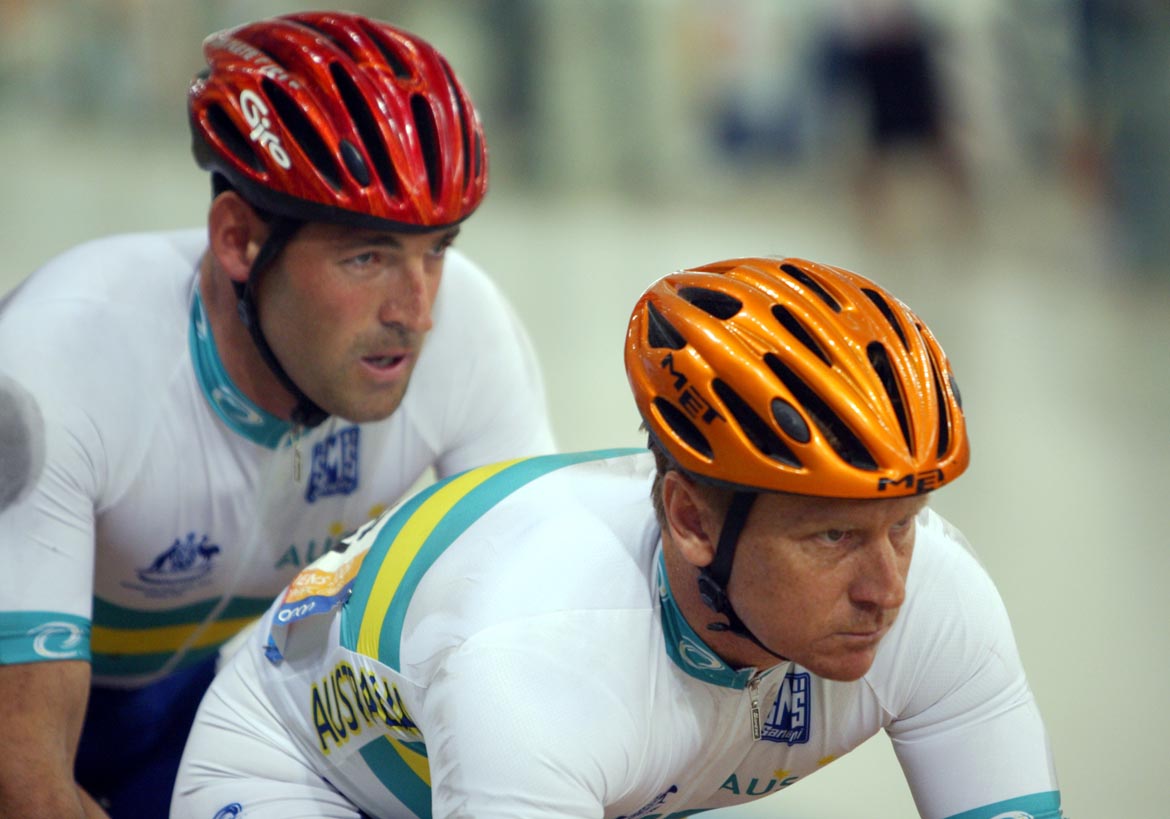
GALLERY: The Kieran Modra Athens’ story – in pictures and words
GALLERY: The Kieran Modra Athens’ story – in pictures and words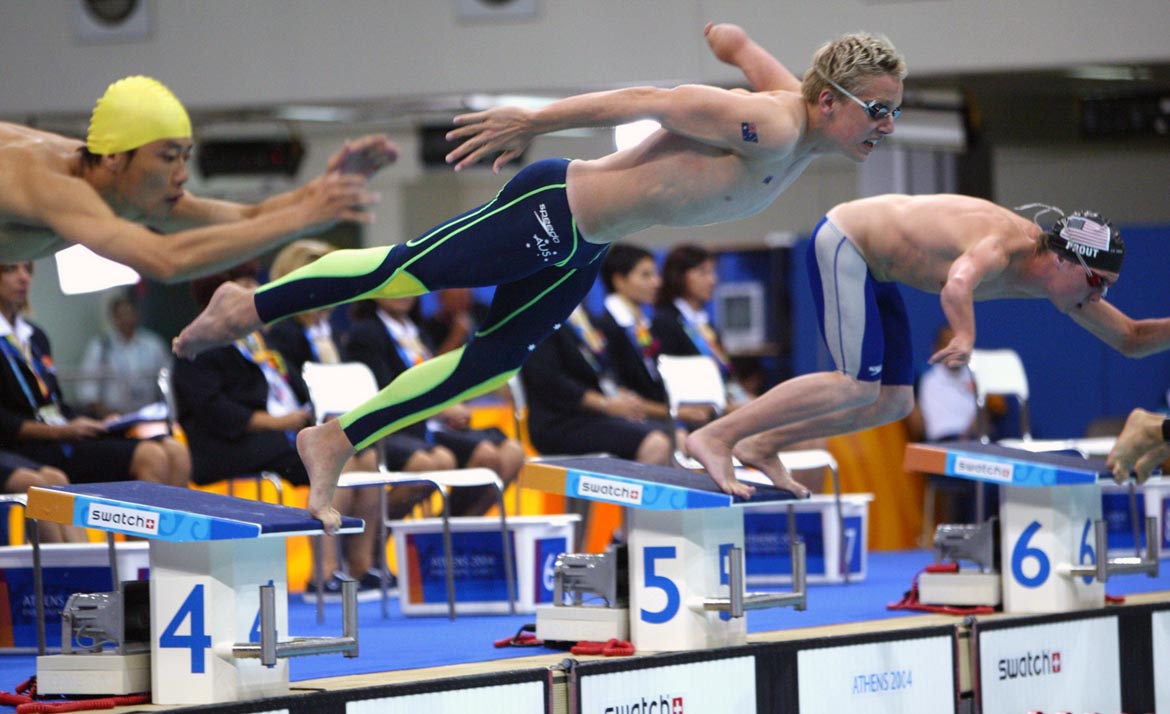
There was no doubt – the biggest rising star was Matt Cowdrey
There was no doubt – the biggest rising star was Matt Cowdrey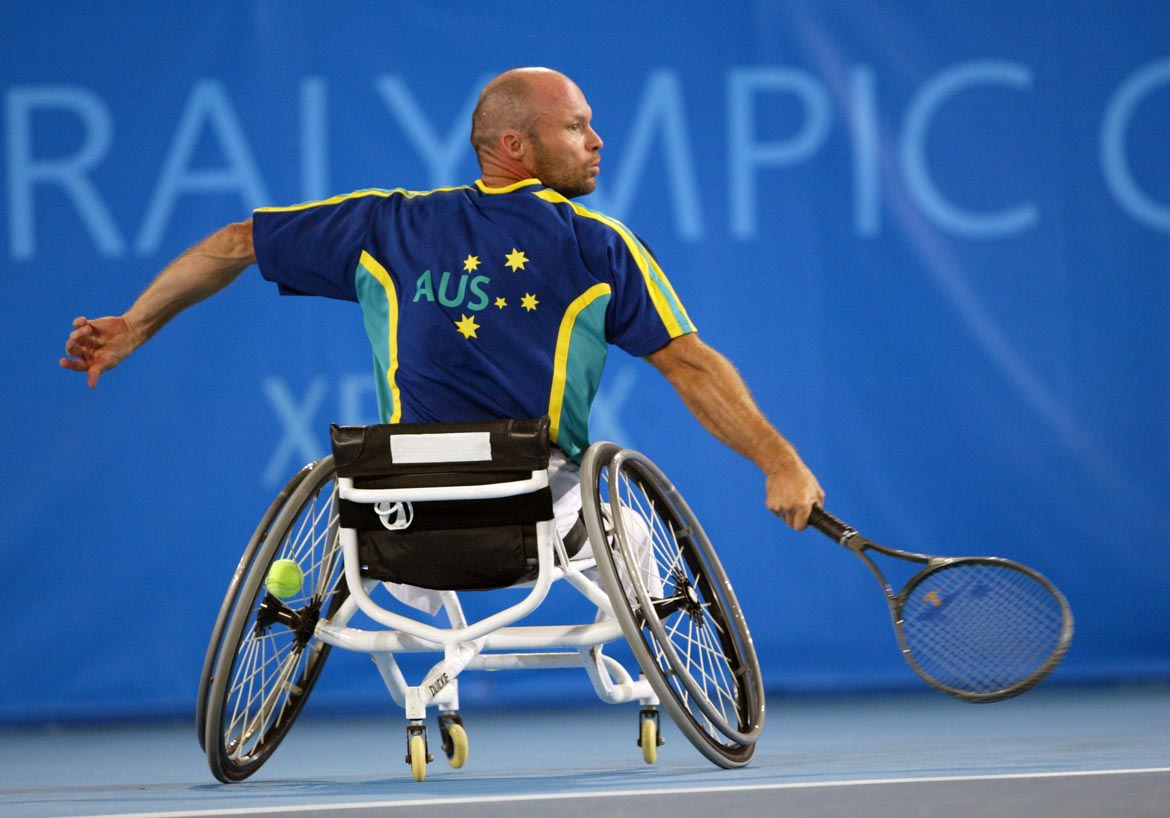
David Hall finished his Paralympic career with another two medals
David Hall finished his Paralympic career with another two medals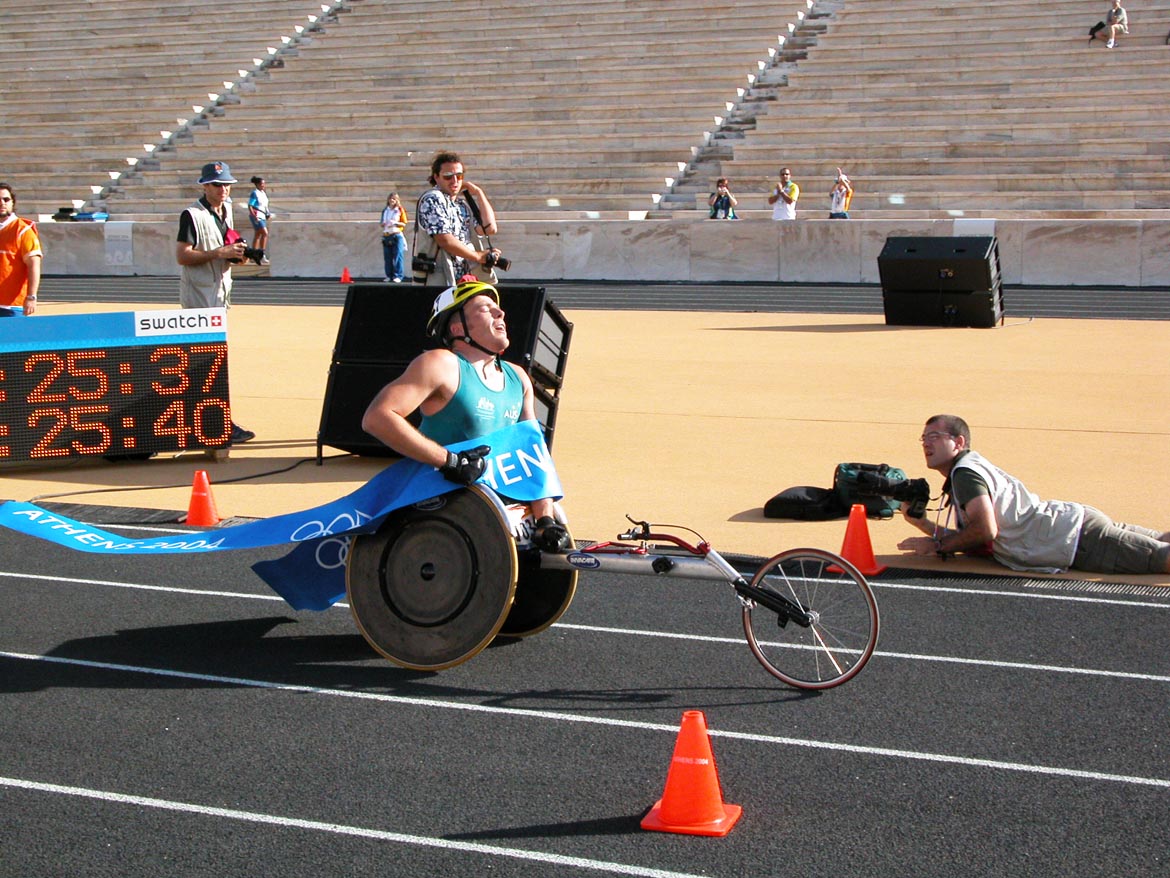
Or a place for one of the great performances of the Games
Or a place for one of the great performances of the Games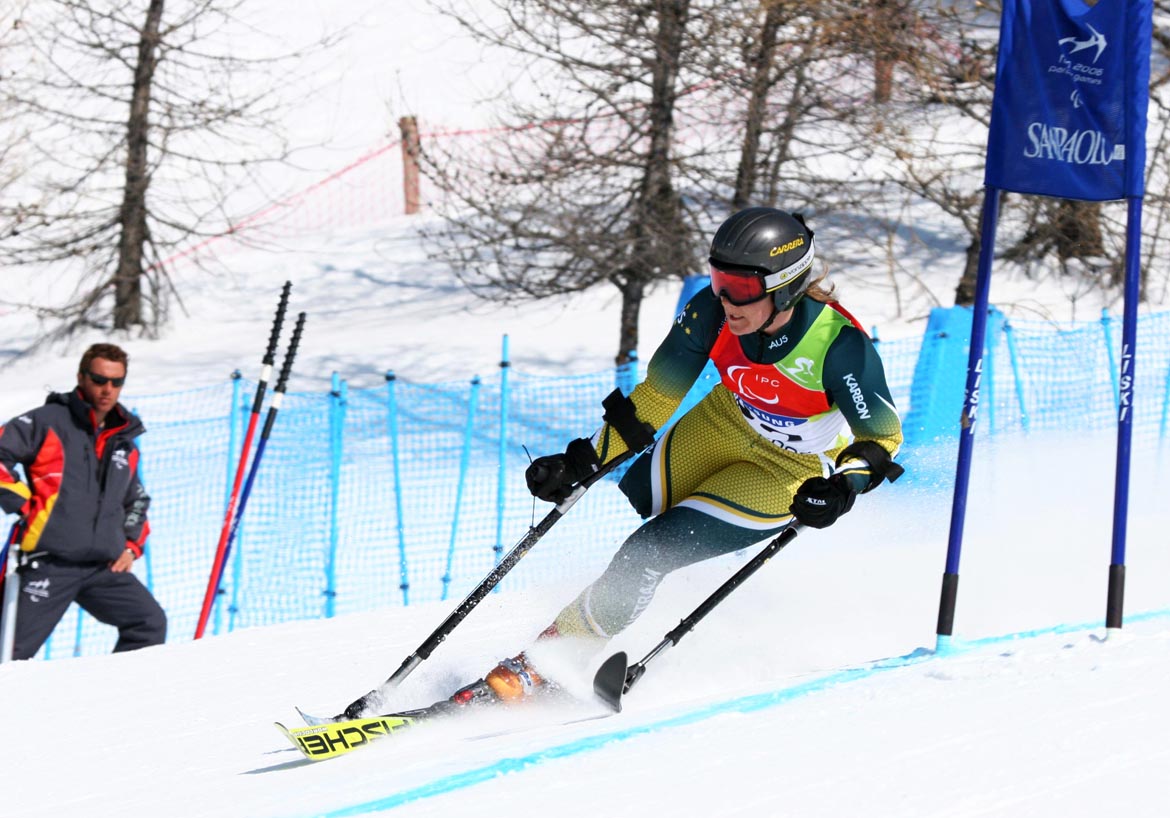
Emily Jansen became Australia’s first female winter Paralympian
Emily Jansen became Australia’s first female winter Paralympian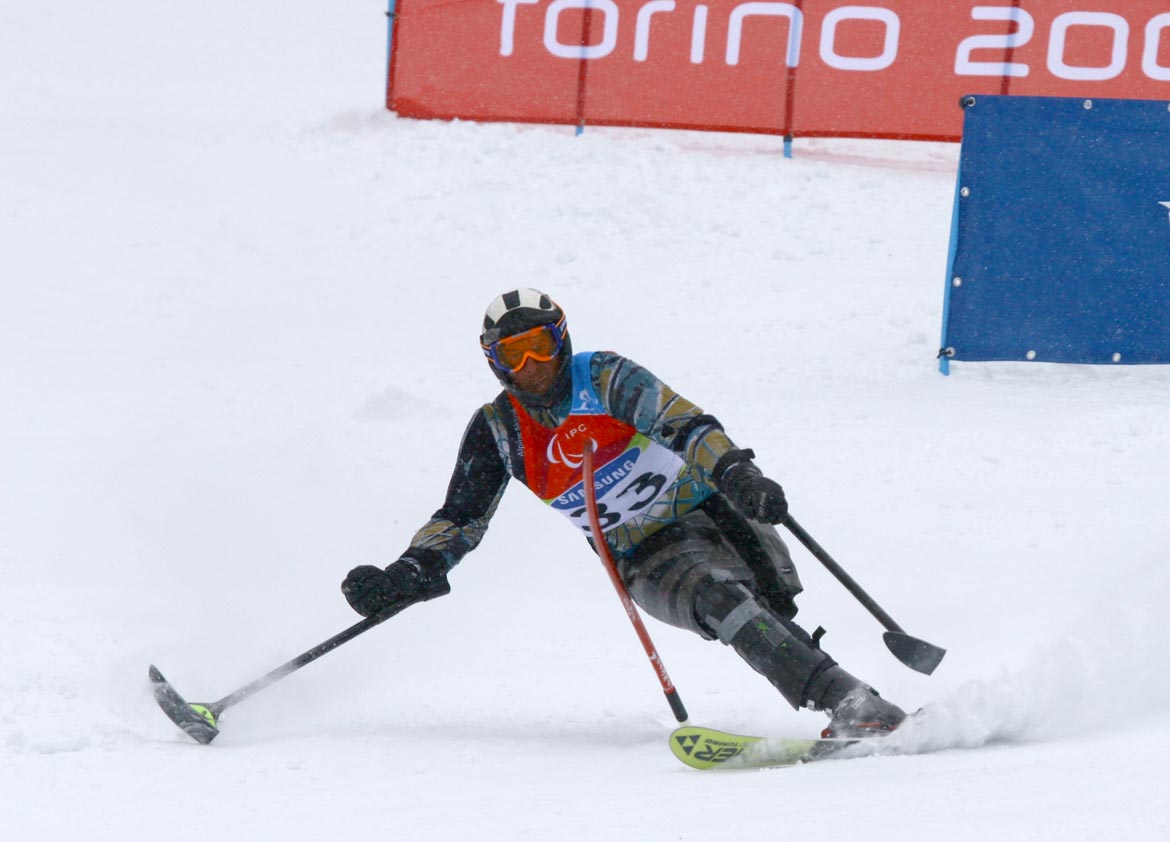
Michael Milton went retro in his final race at the winter Paralympics
Michael Milton went retro in his final race at the winter Paralympics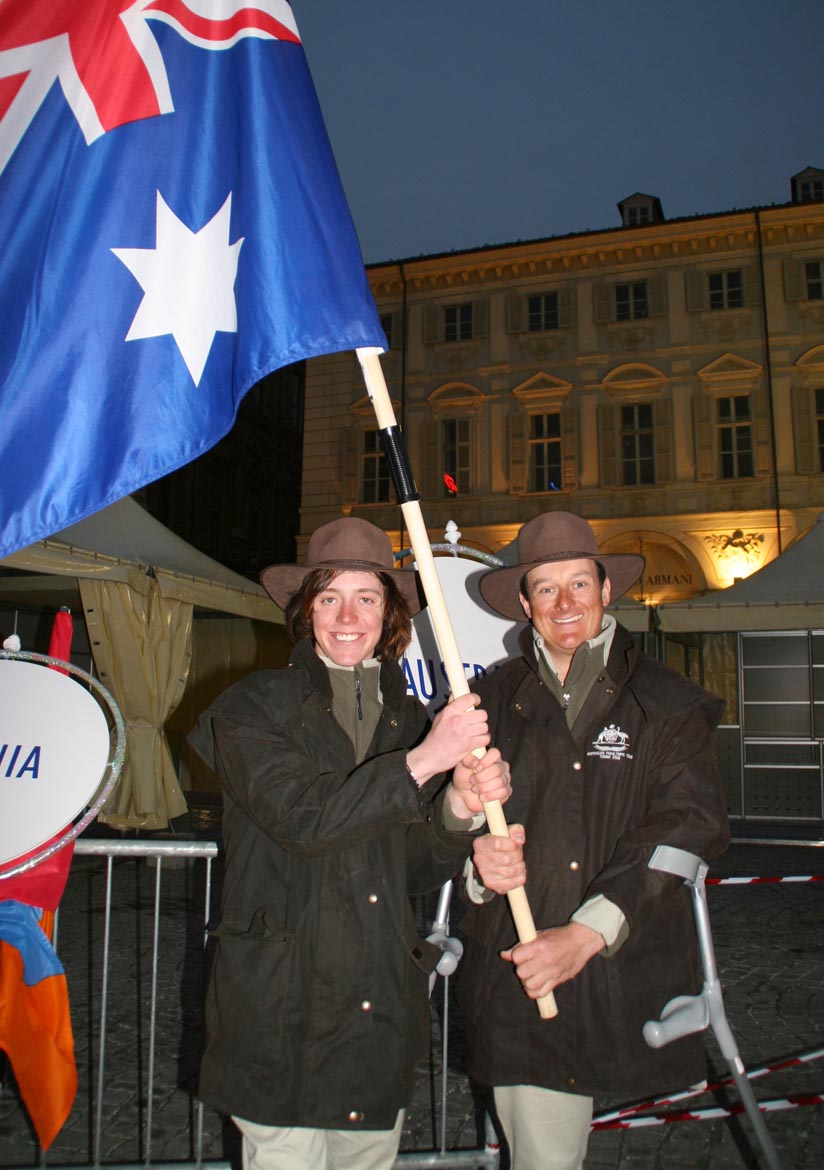
Time to hand over to the next generation (of one legged skiers)
Time to hand over to the next generation (of one legged skiers)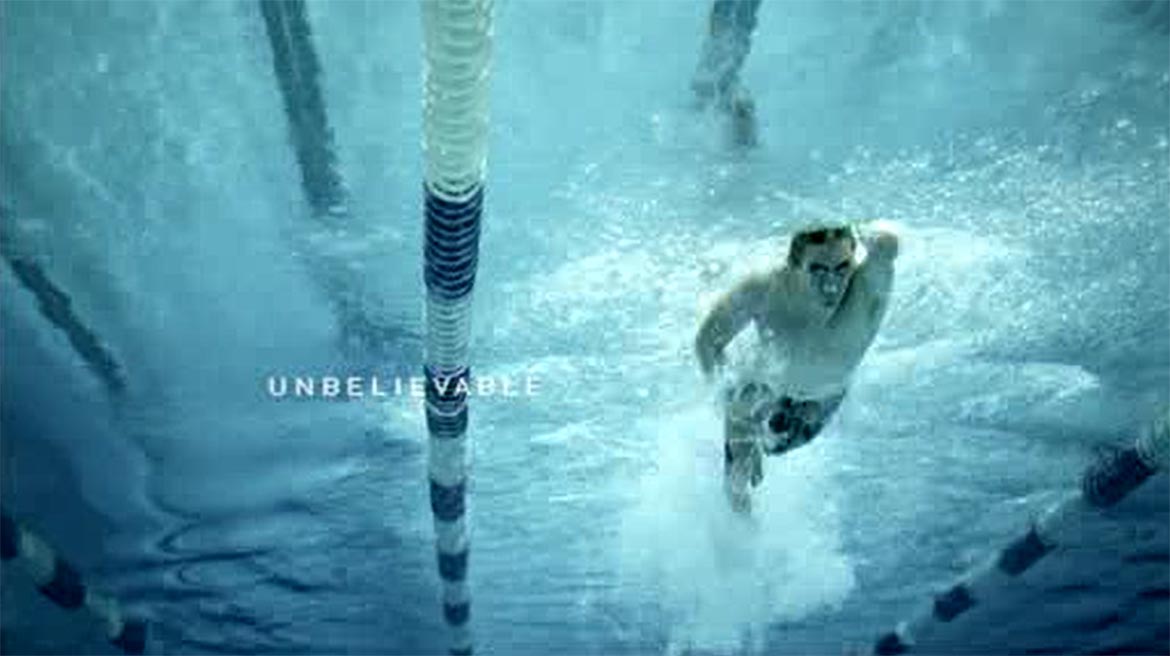
The TV ad was the final element of the UNBELIEVABLE campaign
The TV ad was the final element of the UNBELIEVABLE campaign
Kieran Modra in a familiar position – winning Australia’s first gold medal of the Games
Kieran Modra in a familiar position – winning Australia’s first gold medal of the Games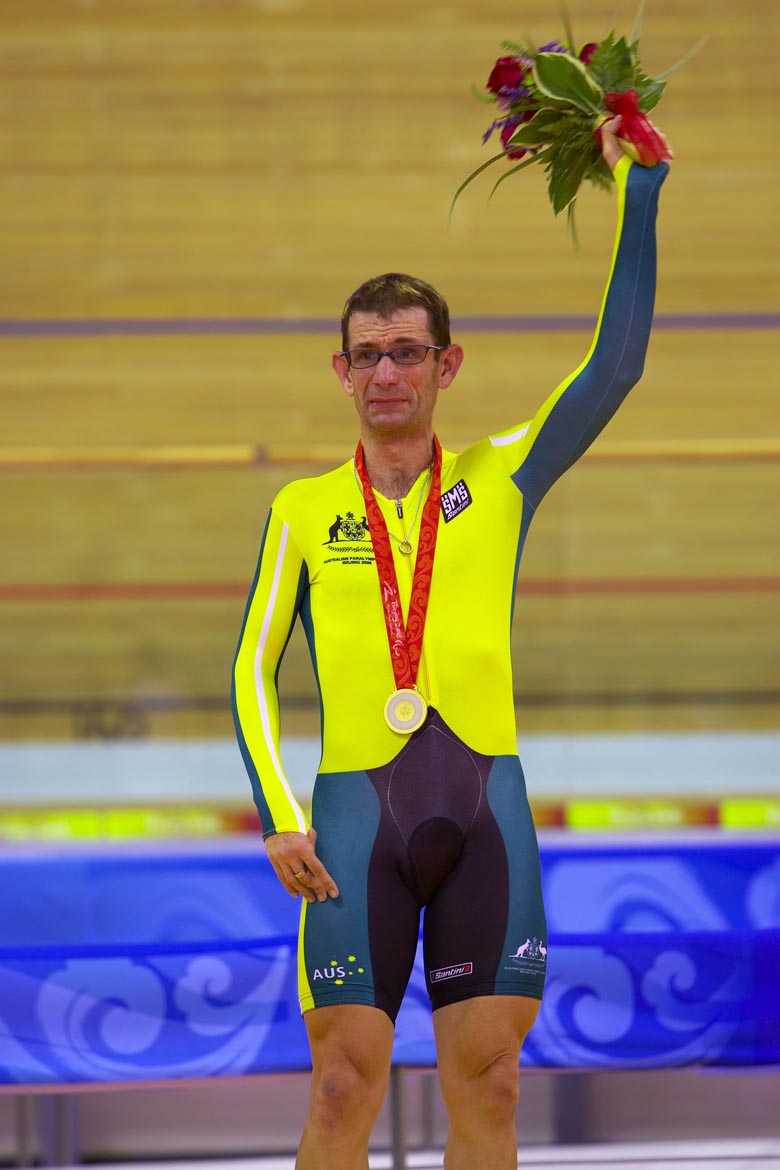
Chris Scott was also in a familiar position – on the top of the podium
Chris Scott was also in a familiar position – on the top of the podium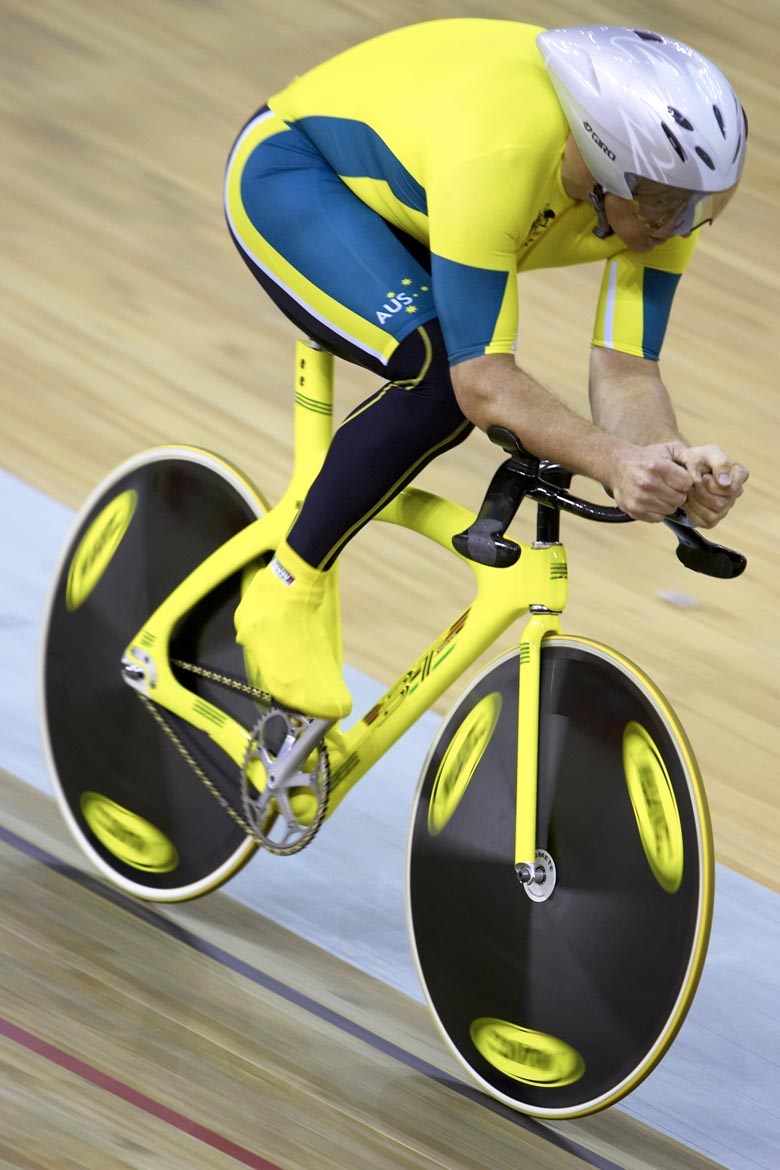
And for ‘Milto’, just being there was a huge achievement
And for ‘Milto’, just being there was a huge achievementFrank Ponta "became a life member and then he earned it"
Bill Mather-Brown reflects on the great contributions of Frank Ponta
Bill Mather-Brown reflects on the great contributions of Frank PontaOur stories
A list of Australian Paralympic athletes, coaches and administrators who have been formally recognised in 2019 for their achievements.
The award winners for 2019
The award winners for 2019© 2026 Australian Paralympic Committee
Web Design and Development by NOUS

























